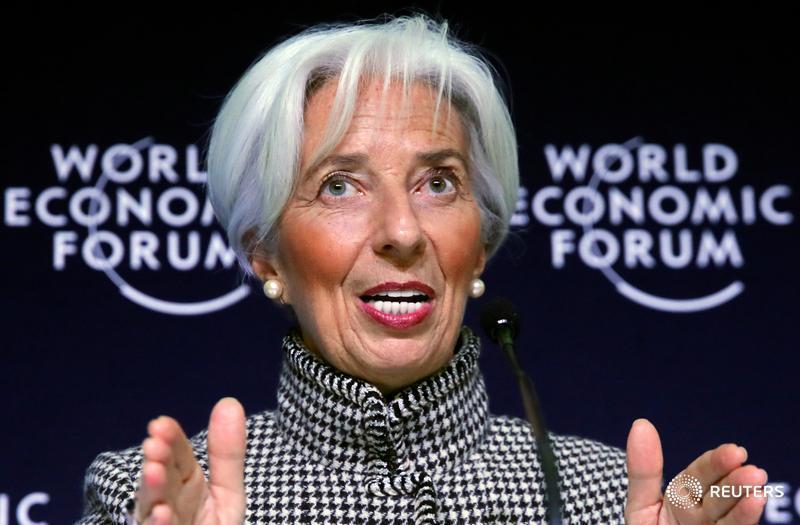
Euro zone economic growth could be weaker in the months ahead and the medium term outlook is uncertain with downside risks dominating, European Central Bank President Christine Lagarde said in a parliamentary hearing on Wednesday.
The euro zone economy has been virtually stagnant for the past 18 months, and a long-predicted recovery has not materialised.
Weak growth has helped tame runaway inflation but some policymakers are concerned growth is so weak that inflation could fall below the ECB’s 2% target, much like in the pre-pandemic years.
“Survey-based data suggest that growth will be weaker in the short term, on the back of slowing growth in the services sector and a continued contraction in manufacturing,” Lagarde told the European Parliament’s Committee on Economic and Monetary Affairs in Brussels.
“The medium-term economic outlook is uncertain, however, and dominated by downside risks,” Lagarde added. “Geopolitical risks are elevated, with growing threats to international trade.”
Given the open nature of the bloc, trade barriers pose a threat to manufacturing and investment, Lagarde added.
Still, Lagarde said there could be some recovery ahead, driven by increased investment and consumer spending on the back of rising real incomes.
Inflation, hovering just above the ECB’s 2% target, could rise in the final quarter of 2024 but will then fall back to target next year, Lagarde said, repeating her guidance on prices.
The ECB will next meet on Dec. 12 and economists overwhelmingly expect another 25 basis point rate cut, the fourth such move this year.
Lagarde did little to influence those expectations, saying merely that the bank would follow a data-dependent and meeting-by-meeting approach.
(Reporting by Balazs Koranyi; Editing by Alison Williams and Christina Fincher)










